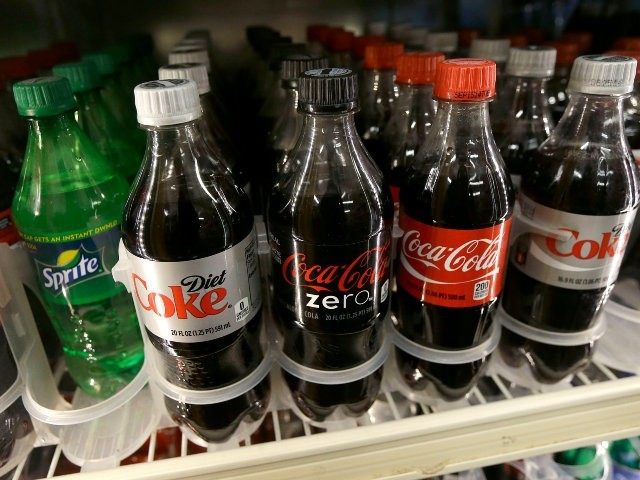WASHINGTON (AP) — A tax on sugary drinks and snacks is one way a government panel of nutrition experts thinks Americans can be coaxed into eating better. Some members of Congress are already pushing back on the idea, saying the panel has overstepped its bounds.
The panel’s recommendations will help determine what gets into the new version of dietary guidelines being prepared by the Agriculture and Health and Human Services departments. The advice includes eating more fruits and vegetables and whole grains and limiting added sugars and fat.
However, the panel goes beyond previous versions of the dietary guidelines by suggesting a broad list of possible policy changes – a tax is just one – that could make it easier for people to follow that diet advice.
“Taxation on higher sugar- and sodium-containing foods may encourage consumers to reduce consumption and revenues generated could support health promotion efforts,” the committee wrote as part of the recommendations released this week.
Such taxes have mostly failed to gain traction around the country, though voters in Berkeley, California, approved a special, per-ounce tax on sugary drinks in November. In New York City, former Mayor Michael Bloomberg tried to cap the size of sugary drinks sold in restaurants and other venues at 16 ounces, but legal challenges spearheaded by the beverage industry brought down the effort in the courts.
Other ideas put forth by the committee were placing nutrition labels on the front of food packages and requiring public buildings to serve healthier foods. The committee also suggested incentives for eating fruits and vegetables, though it didn’t detail how that could work. Panel members said incentives might be vouchers for farmers markets or subsidies for growers or grocery stores.
The panel endorsed adding a line on the nutrition facts label for added sugars, which the Obama administration has already proposed. It also backed the administration’s standards for healthier school lunches.
Senate Agriculture Committee Chairman Pat Roberts, R-Kan., criticized the report shortly after it came out Thursday, saying the committee strayed from its science-based nutrition recommendations.
“This is economic, not nutrition, policy,” he said.
Congress weighed in on a draft of the report last December, noting that the dietary guidelines panel was poised to suggest a more environmentally friendly diet of plant-based foods. In a massive spending bill, lawmakers instructed Agriculture Secretary Tom Vilsack “to only include nutrition and dietary information, not extraneous factors” in the final guidelines.
After the report was issued, Vilsack said the guidelines are supposed to be informed by the “latest and best science and medical knowledge.”
He wouldn’t address the content of the report specifically, but said he doesn’t want the final report to have “anything outside of the lines in the guidelines that would potentially undercut the legitimacy, credibility and acceptance of the guidelines. … The law is fairly clear to me, it’s about nutrition and it’s about diet.”
Committee members say their panel was charged with looking at implications of its findings, and the policy changes were just suggestions.
“The idea is to stimulate thinking on how to get there,” Barbara Millen, the chairwoman of the committee, said Friday.
Alice Lichtenstein, a member of the panel and a professor at Tufts University, said there is some data that similar policy initiatives have worked, like efforts to ban trans fat from the food supply. She said the policy suggestions are to raise the issue for the future.
“To bring it up as something for future consideration, I think that’s appropriate,” she said.
One former member of a dietary guidelines advisory panel disagreed.
Joanne Lupton of Texas A&M University, who served on the 2005 dietary guidelines advisory panel, said her committee was told just to stick to the science.
“They should show us studies that taxes have a beneficial effect,” she said of this year’s panel.
The beverage industry argued the same point. “The committee does not have the authority to make such recommendations, nor the scientific evidence or expertise to back up its recommendations,” the American Beverage Association said in a statement.
—
Follow Mary Clare Jalonick on Twitter at http://twitter.com/mcjalonick

COMMENTS
Please let us know if you're having issues with commenting.